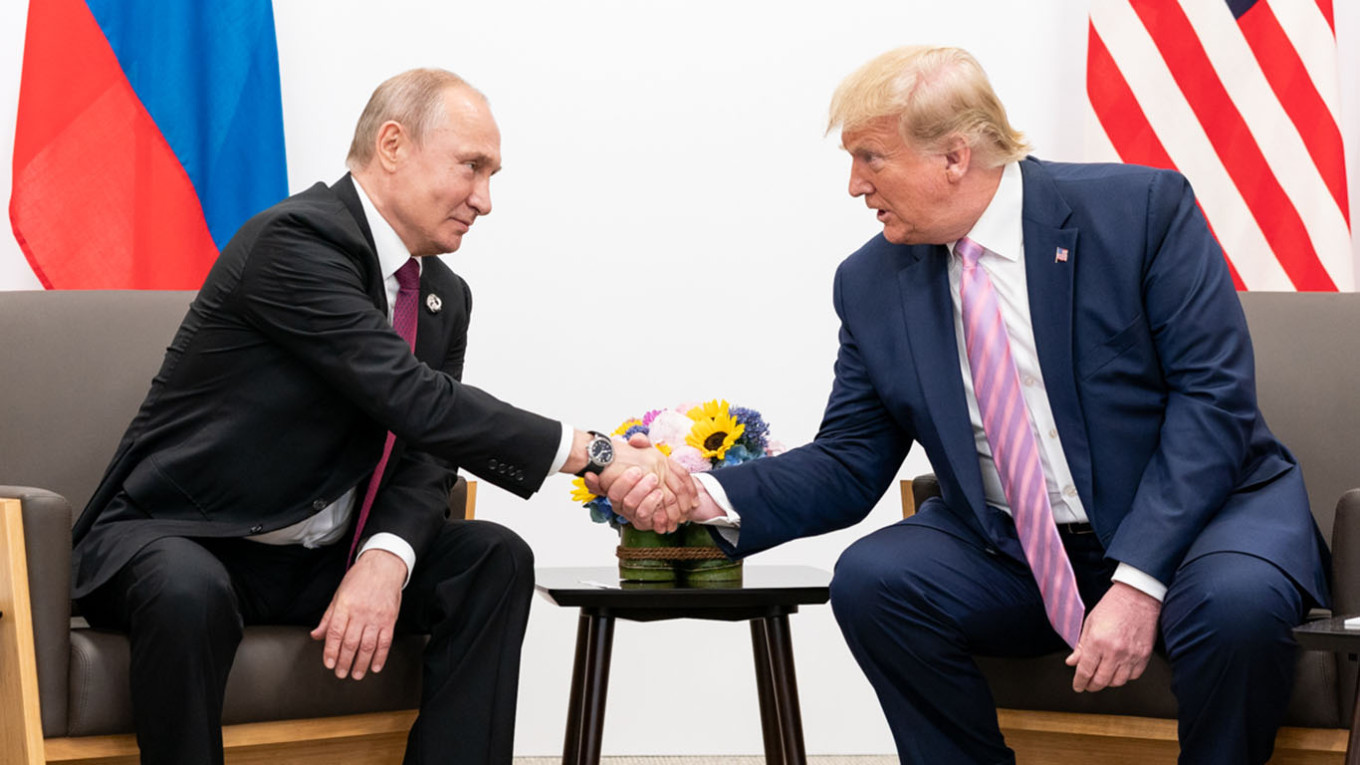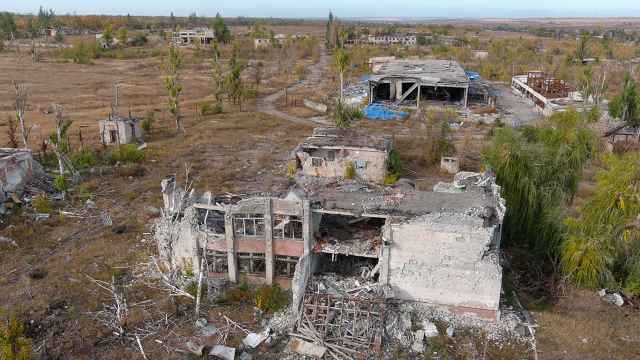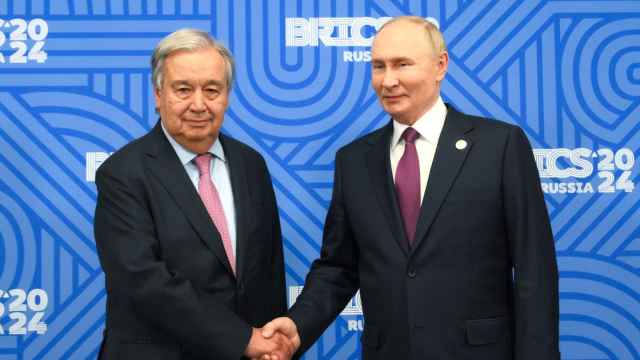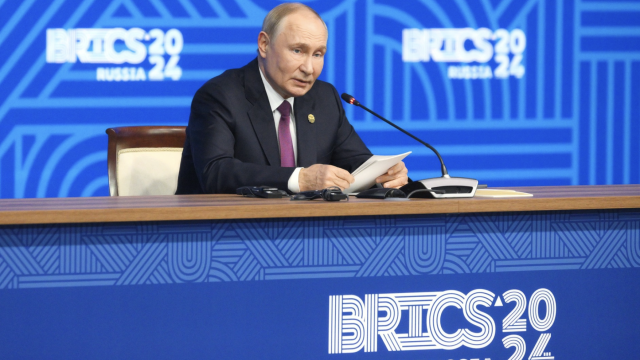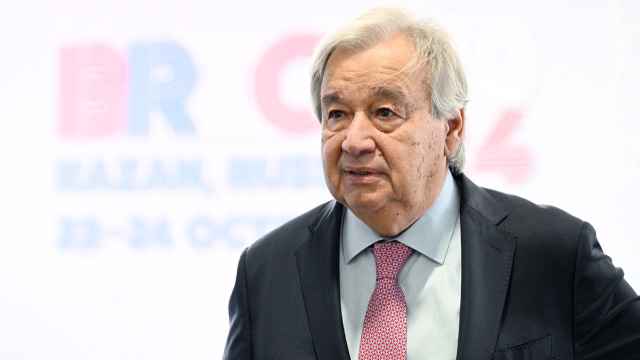Talks of a peace breakthrough in Ukraine are once again in the air after U.S. President Donald Trump declared that “great progress was made” during a meeting between his special envoy Steve Witkoff and Russia’s Vladimir Putin on Wednesday.
The Kremlin raised hopes of a ceasefire deal even further by announcing on Thursday that preparations are underway for a face-to-face meeting between Putin and Trump in the “coming days.” The White House has yet to confirm those plans.
Despite the upbeat language and vague optimism, some experts are warning: we’ve been here before.
Instead, they say, Moscow will likely use a high-level summit to make Trump believe it wants to end the war while continuing to pursue its maximalist goals that effectively amount to a Ukrainian capitulation — the same strategy it has been pursuing since Trump’s inauguration in January.
“The Russian side can frame this in a dozen different ways, creating the impression that Moscow is open to concessions and serious negotiation,” said Tatiana Stanovaya, a senior fellow at the Carnegie Russia Eurasia Center in Berlin.
Moscow “has been doing so for some time, but the core position remains unchanged: Russia wants Kyiv to surrender,” she said.
The timing is hard to ignore. The Kremlin’s announcement of a Putin-Trump summit came just a day before the U.S. president’s deadline for Russia to end its war or face a new round of sanctions and tariffs on its key trading partners. The proposed meeting now gives both leaders a possible off-ramp.
“Putin couldn’t allow himself to be seen caving, but Trump couldn’t impose sanctions unless he knew they would work. Neither wants to project weakness. Thus, paralysis,” wrote Sam Greene, director of Democratic Resilience at the Center for European Policy Analysis.
“These proposed talks — if, of course, they happen — are a way out. Enough progress for Trump to claim his threats worked, but not enough for Putin to look like he’s caving. But it’s a better move for Russia than for anyone else,” Greene added.
Alexander Baunov, a senior fellow at the Carnegie Endowment for International Peace, argued that Russia is again trying to make it appear as though Ukraine and its allies, rather than itself, are to blame for the protracted conflict.
“Moscow is trying to reshape the war so that it is fought in places and by means where it has the upper hand, and not fought where it doesn’t,” Baunov wrote on Telegram, noting that a possible ceasefire on long-range strikes may in fact work to Russia’s advantage as it could reduce pressure on Western countries to rush air defense systems to Ukraine.
“The problem is that even a rejection of the [Russian peace] proposal by Kyiv or Western governments is, in a way, also a win for the Kremlin since it shifts at least some of the blame for future war casualties away from Moscow and onto those who rejected the deal,” he added.
“That gives the aggressor a paradoxical advantage: if it offers to de-escalate without having suffered a military defeat, it can start to look like a peace-seeker,” Baunov argued.
Still, some analysts remain unconvinced that the latest diplomatic push will lead to a genuine breakthrough, even on issues where the Kremlin might theoretically be willing to make concessions. Instead, they warn that a cycle of hopeful rhetoric followed by stalled negotiations could repeat itself.
“The likely scenario is that this peace effort will fail once again,” Stanovaya said. “Russia will continue its campaign, and in a few months, there may be a new round of talks, this time under even worse conditions for Ukraine
“The conflict, alternating between open warfare and periods of simmering tension, appears likely to persist for the foreseeable future,” she added.
A Message from The Moscow Times:
Dear readers,
We are facing unprecedented challenges. Russia's Prosecutor General's Office has designated The Moscow Times as an "undesirable" organization, criminalizing our work and putting our staff at risk of prosecution. This follows our earlier unjust labeling as a "foreign agent."
These actions are direct attempts to silence independent journalism in Russia. The authorities claim our work "discredits the decisions of the Russian leadership." We see things differently: we strive to provide accurate, unbiased reporting on Russia.
We, the journalists of The Moscow Times, refuse to be silenced. But to continue our work, we need your help.
Your support, no matter how small, makes a world of difference. If you can, please support us monthly starting from just $2. It's quick to set up, and every contribution makes a significant impact.
By supporting The Moscow Times, you're defending open, independent journalism in the face of repression. Thank you for standing with us.
Remind me later.


